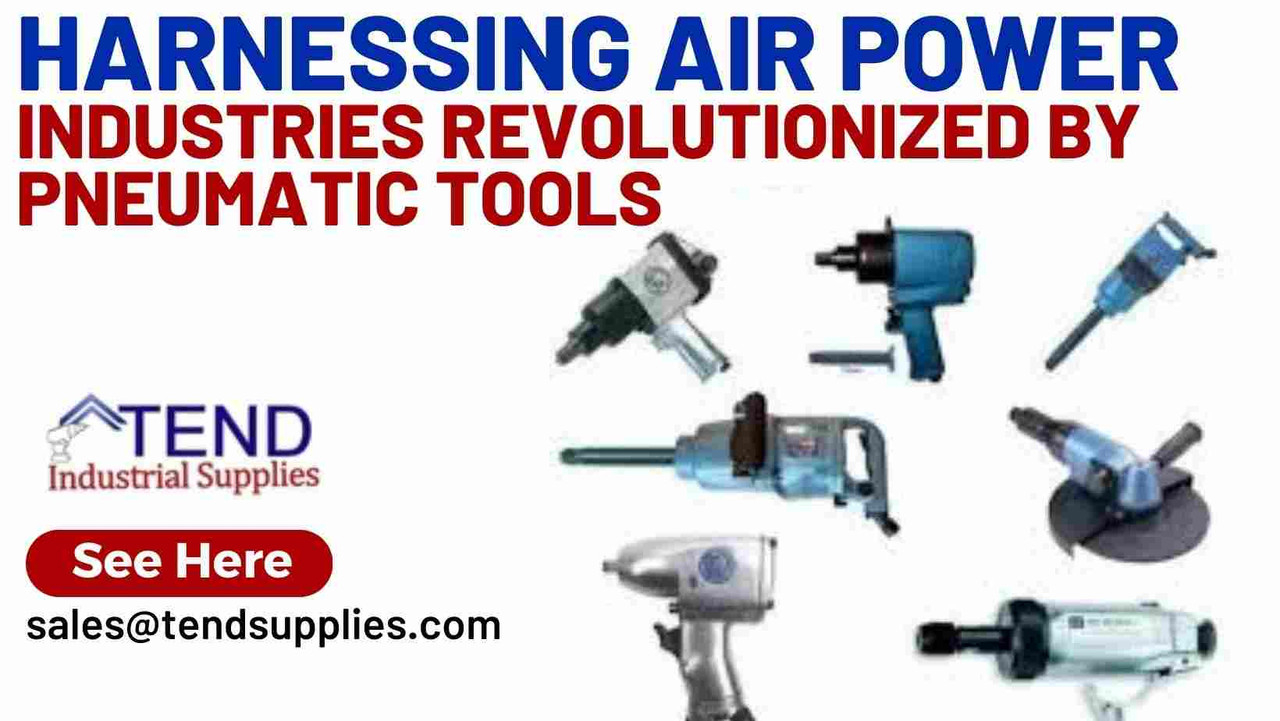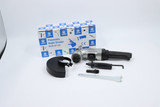Essential Safety Tips for Using Power Tools and Hand Tools in Your Workshop
Introduction
Safety is paramount when working with power tools and hand tools in a workshop. While indispensable for various tasks, these tools can pose significant risks if handled incorrectly. This article aims to provide essential safety tips for using these tools effectively and safely.
Understanding Power Tools and Hand Tools
Power tools and hand tools are the backbone of any workshop. Power tools, such as drills, saws, and welding machines, are powered by electricity or compressed air. Hand tools, however, are manually operated and include items like screwdrivers, hammers, and wrenches. Both types of tools are common in workshops and used for various tasks.
Essential Safety Tips for Using Power Tools
1. Importance of Reading and Understanding the Tool's Manual
Every power tool has a manual with specific instructions for its use and maintenance. It's crucial to read and understand this manual before using the tool. This ensures you know the tool's features, how to operate it safely, and how to troubleshoot any potential issues.
2. Proper Handling and Operation of Power Tools
Proper handling of power tools is key to ensuring safety in the workshop. This includes using the right tool for the job, maintaining a firm grip on the tool, and never leaving a running tool unattended. Refer to this guide for more detailed information on handling specific power tools.
3. Importance of Using Appropriate Safety Gear
When operating power tools, it's essential to wear appropriate safety gear. Safety gear includes safety glasses, ear protection, and gloves. You can find a wide range of safety equipment here.
4. Maintenance and Storage of Power Tools
Regular maintenance of your power tools is crucial for their longevity and safety. Maintenance procedures include cleaning the tools after use, checking for any damage, and storing them properly. For more tips on maintaining your tools, check out this article.
5. Special Precautions for Specific Power Tools
Different power tools require additional safety precautions. For example, when using a saw, ensure the blade is sharp and clean. When using a drill, make sure the bit is securely fastened. Always refer to the tool's manual for specific safety precautions.
Safety should always be your top priority when working in a workshop. You can ensure a safe and productive working environment by understanding your tools and following these safety tips.
Essential Safety Tips for Using Hand Tools
1. Correct Selection of Hand Tools for Specific Tasks
Choosing the right-hand tool for a specific task is crucial for efficiency and safety. For instance, using a screwdriver as a chisel can lead to accidents and damage the tool. Always ensure you have the correct tool for the job at hand. You can refer to this article for a guide on selecting who makes quality hand tools.
2. Proper Handling and Usage of Hand Tools
Proper handling of hand tools is just as important as it is for power tools. Always maintain a firm grip on the tool and use it as it's intended to be used. For example, don't use pliers as a wrench or a wrench as a hammer. This not only prevents accidents but also prolongs the life of your tools.
3. Maintenance and Storage of Hand Tools
Regular maintenance of hand tools is essential. This includes cleaning them after use, checking for any damage, and storing them properly. Tools should be stored in a dry, secure location to prevent rust and unauthorized access. For more tips on maintaining your tools, check out this guide.
4. Special Precautions for Specific Hand Tools
Different hand tools require different safety precautions. For instance, when using a chisel, ensure your hands are out of the tool's path. When using a knife, cut away from your body. Always refer to the tool's manual or seek professional advice for safety precautions. You can read basic safety tips for pneumatic air tools.
Importance of a Safe Workshop Environment
1. Keeping the Workspace Clean and Organized
A clean and organized workspace is key to preventing accidents. Ensure that all tools and materials are properly stored when not in use and that the workspace is free of clutter and debris. This not only makes the workspace safer but also more efficient.
2. Proper Storage of Tools and Materials
Tools and materials should be stored in a designated area, away from walkways and high-traffic areas. This prevents accidents and makes it easier to find what you need when you need it. Storing your tools prevents them from collecting dust, grease, and rust. If you take care of your tools, they'll last longer and perform better. Taking care of your tools also allows you to save money, as you'll avoid having to replace damaged ones. For storage solutions, Tend Industrial Supplies Online Shop offers a good solution.
3. Importance of Good Lighting and Ventilation
Good lighting is essential for safety and accuracy when working with tools. Ensure your workspace is well-lit to prevent eye strain and accidents. Ventilation is also crucial, mainly when working with chemicals or materials that produce dust or fumes.
Training and Awareness
Importance of Proper Training Before Using Tools
Before using any tool, proper training is essential. This ensures you know how to use the tool safely and effectively. Many accidents occur due to a need for more knowledge or experience with a particular tool.
Awareness of Potential Hazards and Knowing How to Respond
Being aware of potential hazards in the workspace and knowing how to respond is crucial for safety. This includes knowing where first aid kits are located, how to use safety equipment, and who to contact in case of an emergency.
In conclusion, safety in a workshop is a multifaceted issue that involves understanding your tools, maintaining a safe environment, and being aware of potential hazards. By following these tips, you can ensure a safe and productive workshop.
Conclusion
The importance of safety when using power tools and hand tools in a workshop cannot be overstated. While essential for various tasks, these tools can pose significant risks if not handled correctly. Therefore, understanding your tools, using them properly, and maintaining a safe workshop environment is crucial to ensuring safety.
Moreover, safety is not a one-time effort but a continuous process. It requires ongoing learning and adherence to safety practices. Always stay updated with the latest safety guidelines and best practices for using tools. Remember, a safe workshop is more productive and a place where you can work with peace of mind.
For more information on safety equipment and tools or any other industrial supply needs, feel free to contact Tend Industrial Supplies LLC at sales@tendsupplies.com. Our team is always ready to assist you in creating a safer and more efficient workshop.









